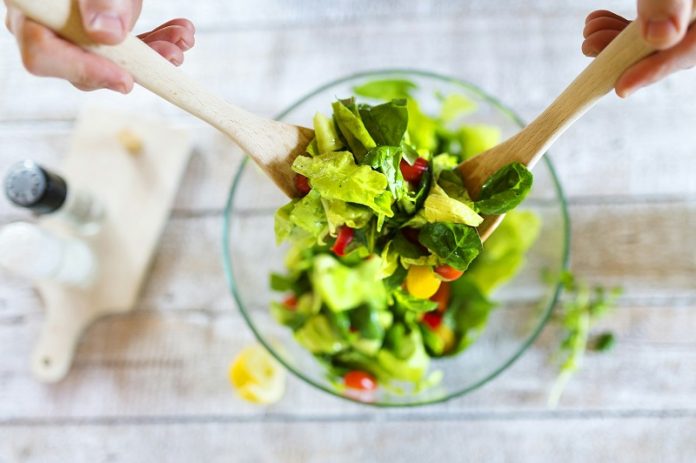
A new study has shown that eating more fruits and vegetables can significantly lower blood pressure and improve heart and kidney health in people with hypertension.
The findings, published in The American Journal of Medicine, suggest that fruits and vegetables should be a primary part of treatment for patients with high blood pressure.
High blood pressure, or hypertension, is a major cause of heart disease and kidney failure, especially in people with chronic kidney disease.
Despite efforts to treat hypertension with medications, the number of people suffering from hypertension-related heart and kidney issues continues to rise.
In fact, heart disease is the leading cause of death in patients with chronic kidney disease.
The DASH diet (Dietary Approaches to Stop Hypertension), which emphasizes fruits and vegetables, has been shown to lower blood pressure and reduce the risk of cardiovascular disease.
However, this diet is not prescribed as often as it should be, and even when it is, many patients struggle to follow it properly.
Diets rich in fruits and vegetables are linked to lower blood pressure, better kidney health, and a reduced risk of heart disease and death.
Dr. Donald E. Wesson, the lead investigator of the study and a kidney specialist at The University of Texas at Austin, explained that his research focuses on how the kidneys remove acid from the blood.
He found that eating a diet high in acid-producing foods, such as animal products, can harm the kidneys. On the other hand, a diet rich in fruits and vegetables, which are base-producing, can protect the kidneys. Other studies have shown that these foods are also beneficial for heart health.
To test the impact of a diet high in fruits and vegetables, researchers conducted a five-year randomized trial with 153 participants who had high blood pressure and chronic kidney disease. The participants were divided into three groups:
- One group ate 2-4 cups of fruits and vegetables daily, in addition to their usual diet.
- The second group took sodium bicarbonate (baking soda) tablets, which reduce acid in the body.
- The third group received standard medical care.
The results showed that both fruits and vegetables and sodium bicarbonate improved kidney health, but only fruits and vegetables reduced blood pressure and lowered the risk of cardiovascular disease. The participants who ate more fruits and vegetables also required lower doses of blood pressure medication.
Dr. Maninder Kahlon, co-investigator of the study, explained that while both fruits and vegetables and sodium bicarbonate were good for kidney health, only the fruits and vegetables provided the additional benefits of lowering blood pressure and reducing heart disease risk. This led the researchers to recommend that fruits and vegetables should be the first step in treating patients with high blood pressure, rather than starting with medications.
Dr. Wesson emphasized that while dietary changes can be challenging for patients to follow, they are effective in managing chronic diseases like hypertension and can help protect both the heart and kidneys. He urged doctors to make healthy diets more accessible and to encourage patients to make fruits and vegetables a core part of their treatment.
The researchers also recommend that people with high blood pressure ask their doctor to check their urine albumin-to-creatinine ratio (UACR) to determine if they have underlying kidney disease and are at increased risk for heart disease.
This study highlights the power of simple dietary changes in improving long-term health and reducing the need for medication in managing high blood pressure.
If you care about nutrition, please read studies about how Mediterranean diet could protect your brain health, and the best time to take vitamins to prevent heart disease.
For more nutrition information, please see recent studies that olive oil may help you live longer, and vitamin D could help lower the risk of autoimmune diseases.



